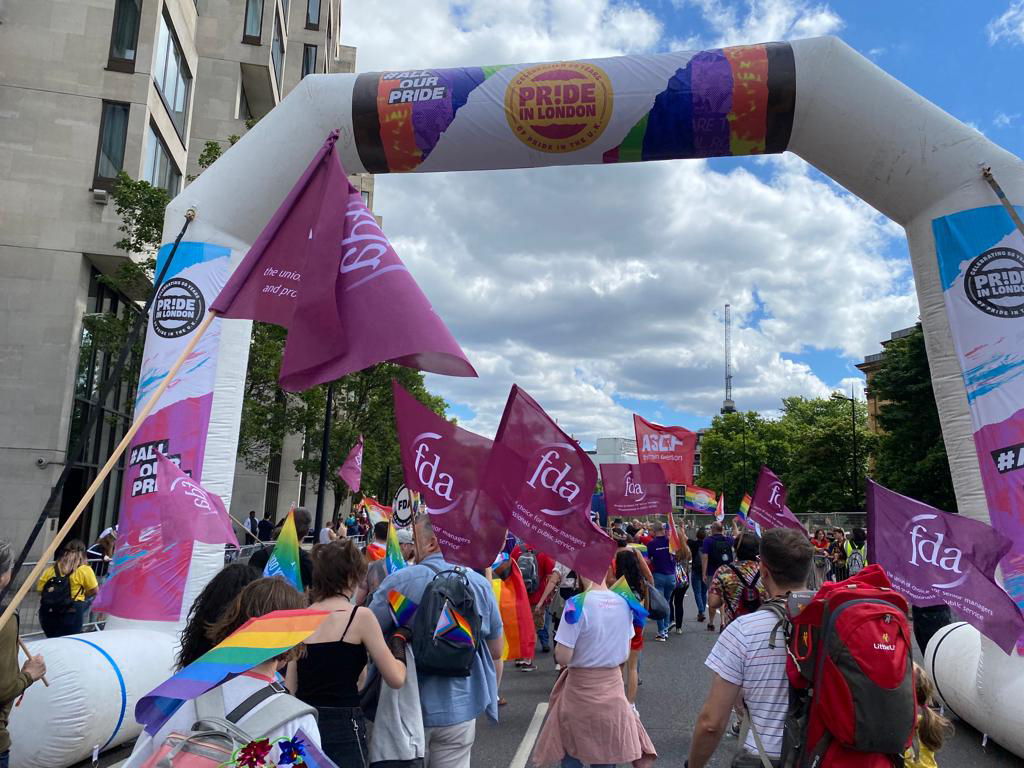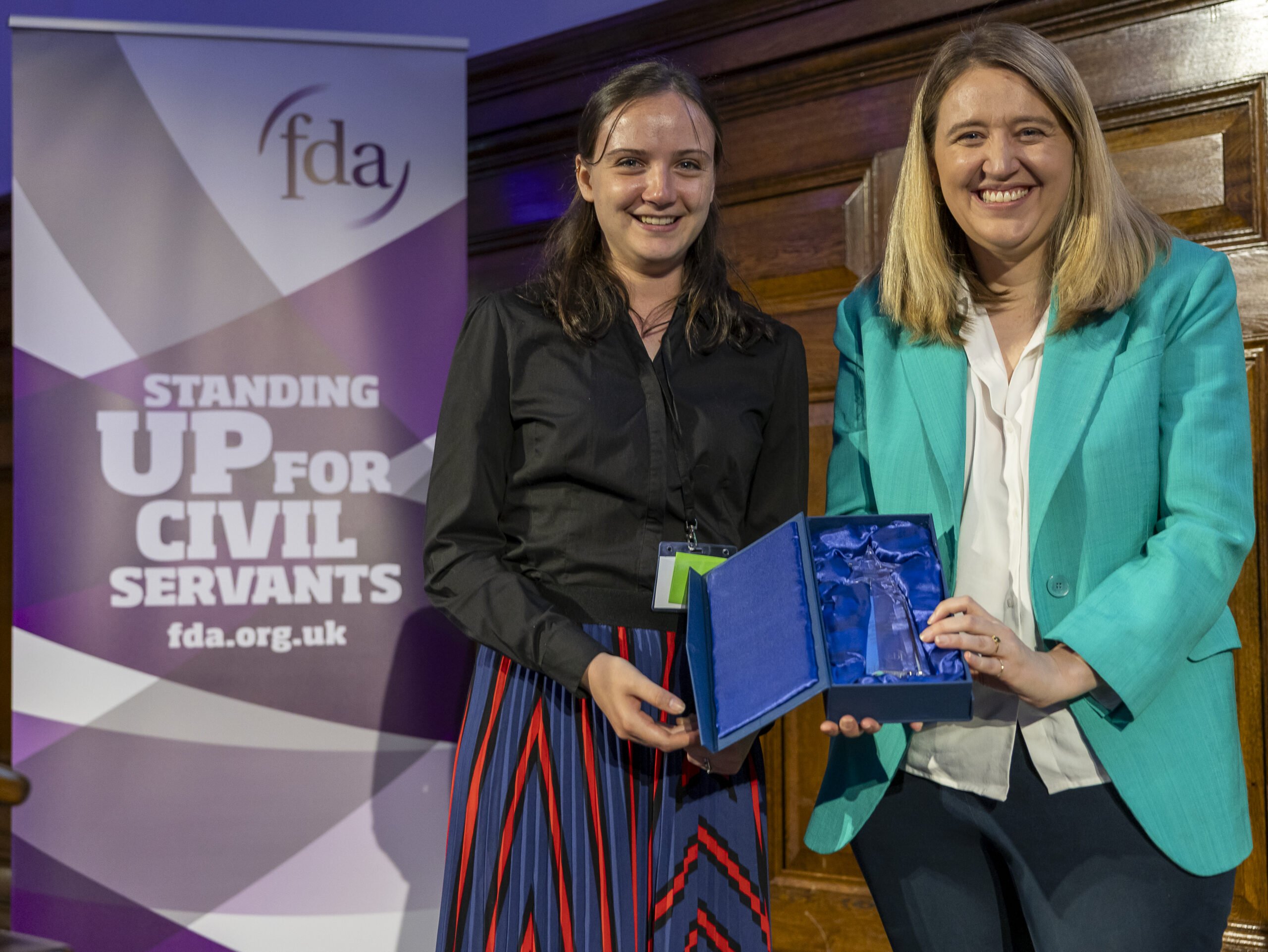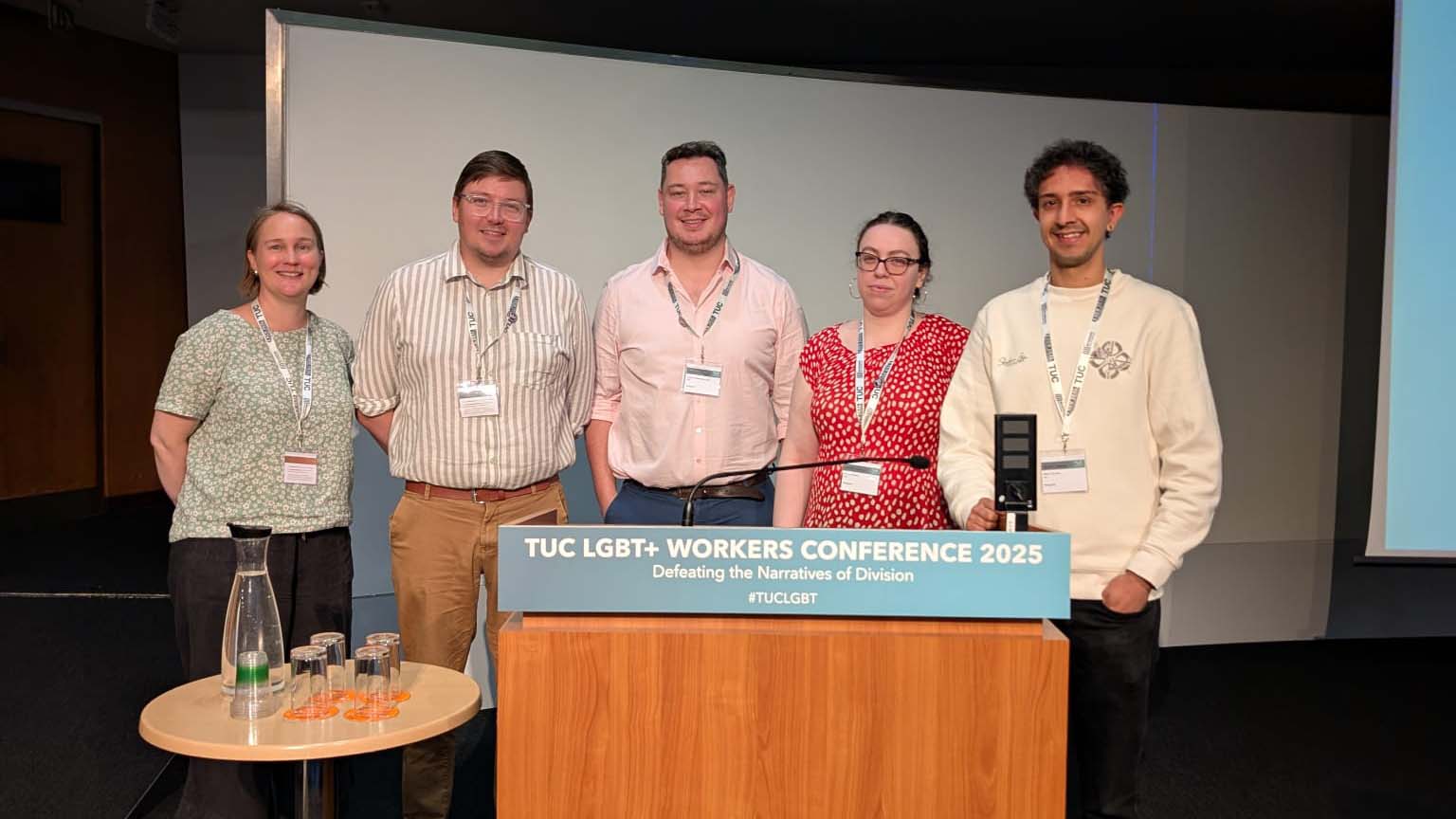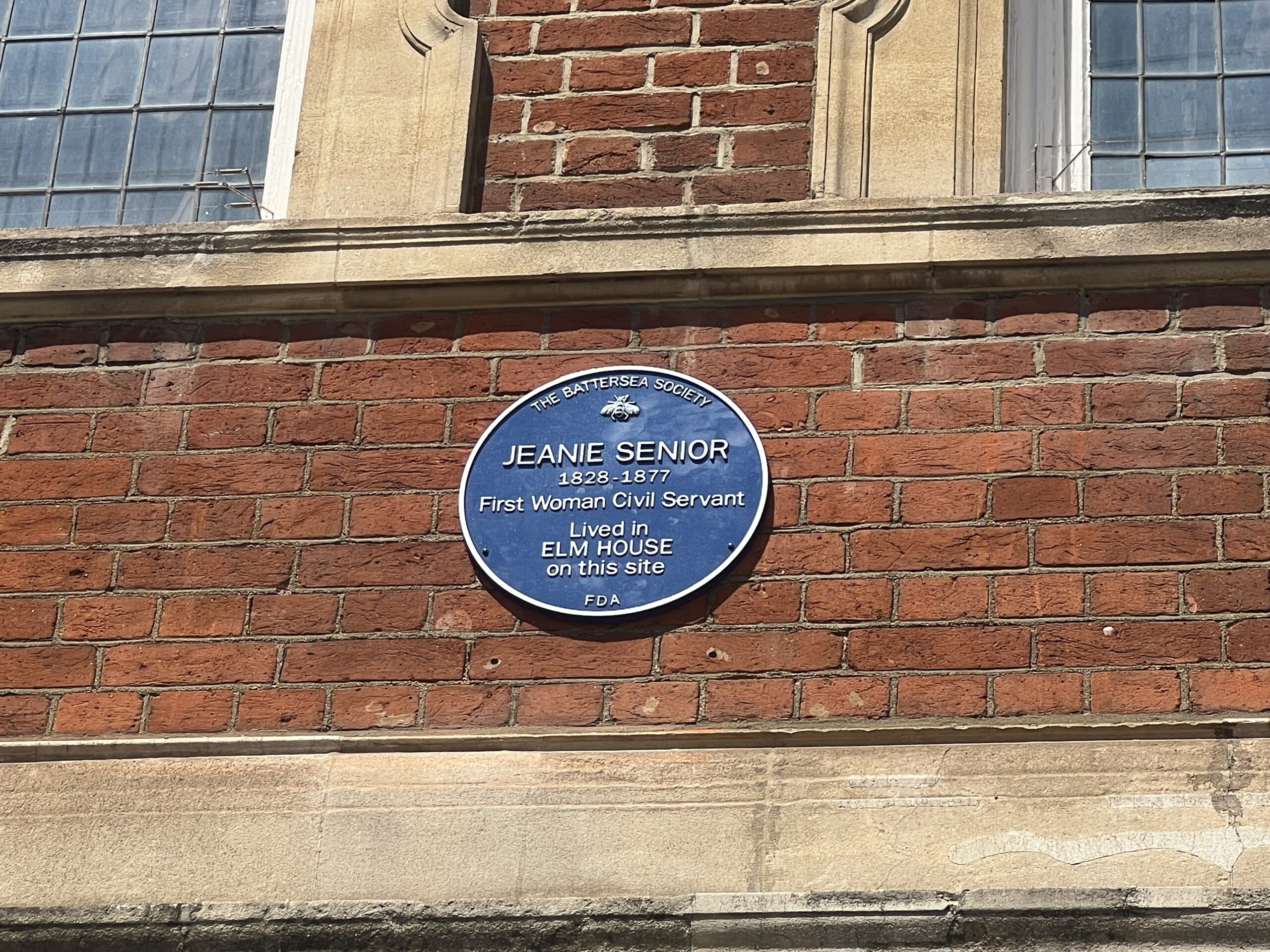FDA panel event for LGBT History Month 2025

To mark LGBT History Month 2025, the FDA hosted an online panel event with members and representatives from civil service-wide networks to discuss the progress and challenges of advancing LGBT equality and inclusion in their workplaces.
FDA Assistant General Secretary Lucille Thirlby chaired a panel event featuring FDA Executive Committee member Simon Percelay, ARC national committee member Cleo Lunt, and Co-Chair of the Civil Service LGBT Network Saorsa-Amatheia Tweedale.
Thirlby kicked off the event by discussing the theme of this year’s LGBT History Month, activism and social change: “It’s a great gift for the union, whose main purpose is activism and change in the workplace”. Discussing the FDA’s “long history of activism and fighting for LGBT equality”, Thirlby recounted the story of Ian Buist – whose battle for equality started in 1969 when Ministry for Overseas Development made him undergo a positive vetting after a seven year tour in East Africa, explaining that his homosexuality was still seen and treated as “a serious character defect”. Buist’s branch put forward the first ever motion on LGBT equality to the FDA’s Annual Delegate Conference (ADC) – which was passed. This meant – in his words – “civil servants who are homosexual now know that if they come out they can count on full support from their colleagues both at local and national level”. It was not until 1991 that the vetting system was reformed and the ban on gay and lesbian staff serving in the diplomatic service was lifted.
Percelay – FDA Executive Committee member and Department for Transport Branch Convenor – told attendees how his interest in unions and LGBT activism began at university: “I think a lot of my interest had been around creating a space for individuals and at the same time pushing our lecturers or the wider university institution to do better for its LGBT students”. He continued: “that’s what inspired my desire to get involved in trade unionism in the civil service and for my approach to it, both in terms of having that dual focus on creating space for community but also providing challenge for the employer, whoever has executive authority and is responsible for creating a wider environment that’s inclusive”.
He also stressed that there must be recognition of the difficult political environment that has arisen in the past 10 years that civil servants are operating within. “The FDA in this space has a unique position”, as it is able to speak out on issues that individual civil servants cannot. Percelay said “it’s something that the FDA has thankfully never been afraid to use when it’s productive… to be able to actively defend the civil service when it’s being unfairly attacked”. But this is also “a role that the FDA should play cautiously” so that civil servants can “retain that confidence to not get dragged into politics”.
Lunt is a national Committee member of the FDA’s HMRC section, ARC, but is also Acting Chair for A:genda, the cross governmental network for trans, non-binary, and intersex staff. They recounted starting school when Section 28 was introduced and leaving Sixth Form when it was repealed: “History Month is always a reminder of what education was like when I was growing up… for me there’s a responsibility to make sure that we don’t lose the progress that’s been made and we continue to make progress and continue to make things better and more inclusive for the people that are growing up now so that they’re coming into a world that they can see the impact of our actions… LGBT people have always been here, maybe the language that they used and that society used to describe people was different in the past, but people within the LGBT community have always existed and have often done some remarkable and wonderful things, despite the challenges facing them.”
Last year, Lunt attended the TUC LGBT Conference as an FDA delegate. Lunt reflected: “I get very siloed within the civil service. The civil service is big and there’s lots going on, but there’s also a wider picture out there and it’s a reminder of that and a way to connect with other people and see what other problems there are… maybe there’s areas where the civil service are doing things very well… and it appears that over there they’re doing this very well, let’s steal that best practise.”
The Civil Service LGBT Network is an employee voice network that states its mission is “to support and challenge the civil service to become the most inclusive employer for LGBT+ people in the country”. Tweedale, who was elected Co-Chair of the network last year, discussed the differences between her work with the network and involvement in her union, PCS. She explained while staff networks “don’t have direct negotiating rights like trade unions do” the LGBT Network has “a very powerful voice” as it represents “more directly the LGBT staff voice in the workplace”.
The panel also discussed how members can balance LGBT activism against the Civil Service Code and responsibilities to be impartial. Thirlby responded that “it’s a lot easier if you are an elected trade union rep or official/officer because you have protection from the union in the sense of you’re being political representing your union’s/members’ views and are protected under your union representative rights in that sense”. Lunt added: “Surely the department can’t criticise you for wanting to pursue the diversity and inclusion goals of the department. There’s a way that you can pursue that without reaching into political territory”.
Latest news
-

2025 Wendy Jones Equality Award winner: Chloé François-Oatway
Katherine Hutchinson speaks to the winner of the Wendy Jones Equality Award 2025, Chloé François-Oatway.
-

FDA attends TUC LGBT Conference and London Pride
To mark the end of Pride Month, FDA delegations attended the TUC LGBT+ Conference and Pride in London.
-

FDA attends unveiling of plaque in honour of first female civil servant Jeanie Senior
The FDA attends the unveiling of a plaque in honour of Britain’s first female civil servant, Jeanie Senior, which took place at Battersea Town Hall. The plaque was funded by the FDA and the Battersea Society, with the unveiling event arranged by local historian and writer Jeanne Rathbone.